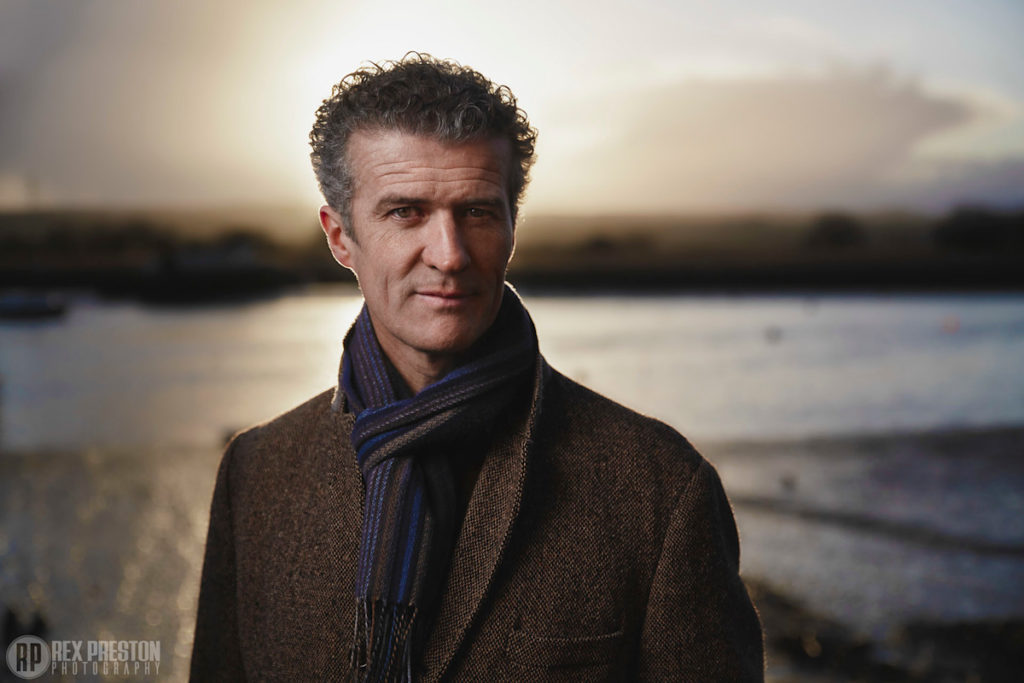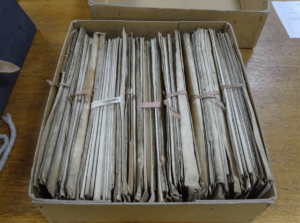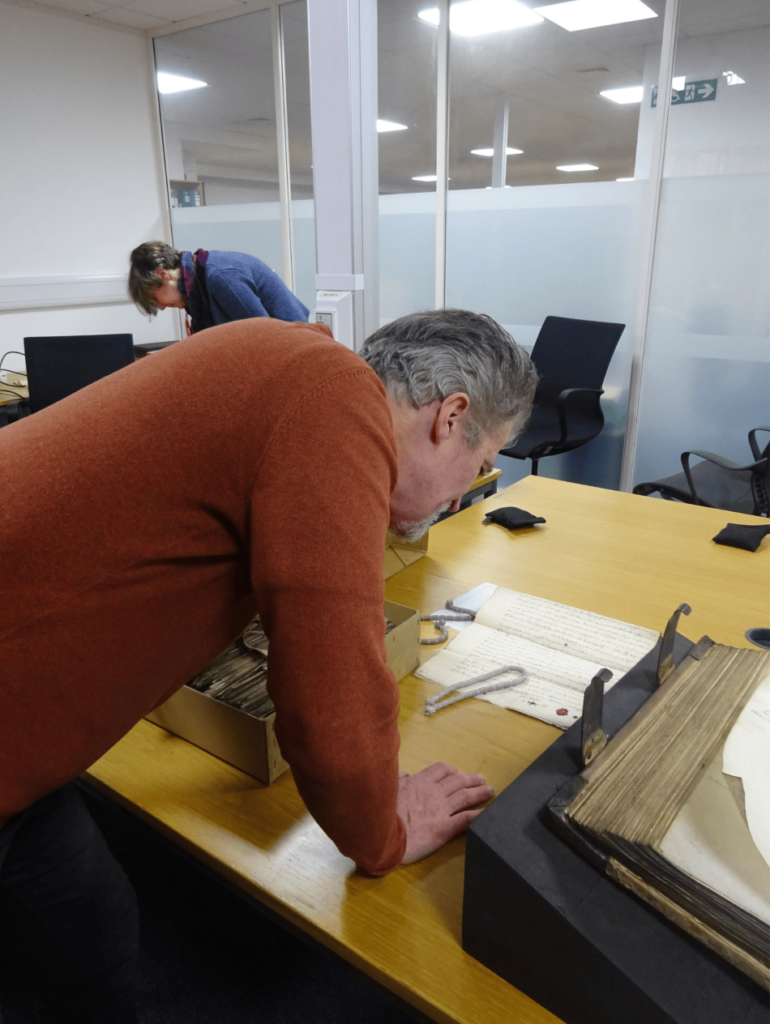Posted by Laura Sangha
10 February 2025Laura Sangha
At the end of last year I was lucky enough to be chosen as a host for an Exeter Arts and Culture Creative Fellow for the project ‘Wills as Windows onto Past Lives’. The fellowships are exploratory placements offering creative practitioners the opportunity to engage with staff at the University, using current research as a springboard for conversation, reflection and collaborative development of ideas.

We are now delighted to welcome Devon based composer, arranger, performer and lyricist Chris Hoban to the project. Chris is a singer who plays guitar, piano, piano accordion, cello and mandocello. He has performed and worked alongside many artists including Billy Bragg, Jarvis Cocker (Pulp), KT Tunstall, Jerry Dammers (The Specials), Kate Rusby, Chris Difford (Squeeze), Steve Knightley, Phil Beer, Miranda Sykes and Jim Causley. Indeed, Chris has written regularly and performed occasionally with the Knightley, Beer and Sykes Devonian folk roots band ‘Show of Hands’, adding songs such as Hallows’ Eve, The Old Lych Way, Katrina and The Padre to their repertoire. He is also a highly regarded choral composer and arranger for amateur, community and professional choirs.
Most recently, Chris co-wrote the RNLI bicentennial 2024 Christmas single ‘Pull Away’ with James Studholme of ‘Police Dog Hogan’. Having taught music & drama in schools for over two decades, he continues to work as a music educator within neurodevelopmental (early years and SEN schools) and neurodegenerative communities (residential care homes, as a 1:1 music therapist).
Creative Histories
It’s great to be working with Chris, as I’ve always been interested in the artistic aspects of the discipline of History, and the creative act of transforming the stuff that survives from the past (text, objects, landscapes, buildings…) into histories. I applied to be a host because I wanted to find more experimental ways of exploring the nature and content of wills and to reflect further on the process of transforming the words of wills into new forms.

For, as regular readers of this blog will know, wills are much more than mere legal texts. They are full of people, places, relationships, emotions, and objects, they are deeply evocative but also often frustratingly mysterious, a mere glimpse into a person’s life. Because of the multi-layered and incredibly rich nature of historic wills they have great potential as the focus for creative approaches.
I was already an admirer of Chris’ past work before he applied for the fellowship because of both its attention to historical aspects and his uncanny ability to enable his audience to step into another person’s shoes and see the world from their perspective. His focus on the narrative voice, and on how past people saw and inhabited their world is a natural fit with both the personal and individual nature of wills, and with what they reveal about ‘lived experience’ in the past.
Wills as Windows onto Past Lives
Chris and I have already started to jointly explore some of the stories and material culture encapsulated in our wills and in regular conversations are sketching out our shared areas of interest, those themes and features of wills that most catch our eyes (and ears).
Before Christmas I was in the audience when Chris performed a selection of original and traditional songs at a local musical institution, The Bridge Inn, Topsham. Last week Chris met the rest of The Material Culture of Wills team when he joined us for a visit to The National Archives to see some of the wills in person. We looked at both original wills and their registered copies, an encounter that gives you a feel for these documents that can’t be matched by viewing their digital analogues. Chris and I were particularly delighted to locate the will of Alice Walter, since hers is a testament that has featured in lots of our conversations, and which contains some bequests of finger rings that are generating lots of new avenues for us to explore.


In the next fortnight we are looking forward to meeting with the second Creative Fellow to compare notes – multidisciplinary artist Carmen Wong, who is working with Dr Clemence Scalber Yucel from The Institute of Arab and Islamic Studies. Over the coming months Chris is planning to write blogs reflecting on our collaboration and we have a few other ideas for disseminating the fruits of our fellowship by a variety of means, so watch this space to see where this creative exchange ends up!